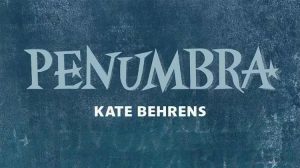POET by Clark Coolidge / Pressed Wafer Press / 2018
 Last spring I had the privilege of hearing Clark Coolidge read from his manuscript POET in San Francisco at Bird and Beckett to a capacity crowd. I was anticipating the usual wild ride. Beautifully and thickly laden improvised text special to Coolidge and his language. One of near pure improvisation and music without us needing to immediately seek or “get” its meaning. What I and the audience got instead was what has now emerged as a 310-page book. Clark opened the large manuscript, peeked at the audience and in that cool, relaxed, voice of his (straight out of west coast cool jazz), announced that he’d be reading from a new manuscript and that due to its nature he could and would jump around at random within its contents. And so he did.
Last spring I had the privilege of hearing Clark Coolidge read from his manuscript POET in San Francisco at Bird and Beckett to a capacity crowd. I was anticipating the usual wild ride. Beautifully and thickly laden improvised text special to Coolidge and his language. One of near pure improvisation and music without us needing to immediately seek or “get” its meaning. What I and the audience got instead was what has now emerged as a 310-page book. Clark opened the large manuscript, peeked at the audience and in that cool, relaxed, voice of his (straight out of west coast cool jazz), announced that he’d be reading from a new manuscript and that due to its nature he could and would jump around at random within its contents. And so he did.
The book is dedicated to David Meltzer and echoes his long poem “When I Was a Poet.” Meltzer and Coolidge shared many loves, two of the strongest being poetry and jazz. They played together and read together on many occasions and produced an LP, Serpent Power (a group Meltzer formed in California). My immediate thoughts when hearing these poems were that for Coolidge they were less dense, more “coherent”, gentle, deceptively linear and simple yet just as deeply witty, “informative” and confounding in a sort of abstract way and even though there really is no set order one poem, in its own fashion almost picks up where the other left off intimately yet objectively linked together. Sometimes mocking it or itself. More like riffing on the head (basic tune) than extending and repeating it in various patterns rather than the improvisation that usually follows the melody. Let’s say like repeating and dissecting the melody like the musician Lee Konitz would do, where the tune itself is never entirely lost, and not playing “off” the changes of that melody like Charlie Parker would do, a la “I Got Rhythm”, something I confess I never got, because my ear could never find the original tune embedded in those changes. So I thought “Wow, C.C. has pared it down yet cubed it. Kept it simple, vibrant but though still complex, more accessible”. Then I got the book, cracked it open like I would an LP or CD and played it with not only my eyes but with my ears as well as I did that first night.
What I discovered with these shorter pieces is that he’s managed, rather than the long continuous blowing he’s usual into, to do both. By extending and diminishing the solos at the same time he has created a world that both repels and draws the reader in with these koan-like breaths where the “simple” words poet, poem and all they connote, in a very serious, playful and oft-times, cynical put down-ish way. Something very few have managed to or dare to accomplish. It is, in its own humble way, his monumental book of choruses akin to Kerouac’s Mexico City Blues or San Francisco Blues. It is matter-of-fact, playful, wise, wise-cracking, essential and like many of Coolidge’s works , one can “hear” it while reading it. Meditation / variation / drum beat / heartbeat … what is the real thing? Between the poet and the poem there is poetry and unless I’m reading Coolidge wrong that seems to be the major element he finds missing in this equation, lots of poems by lots of poets about lots of things but very little poetry. Ironically in Meltzer’s earlier poem where he ruminates on “when he was a poet” (my guess meaning a young one starting out and filled with romantic notions) he saw poetry in everything. Now, a veteran of the craft he just IS and everything IS. In other words he went beyond labels. Or possibly the “poet” has morphed into poetry itself, the way a great musician becomes the music.
Though I still contend poetry and the poem are 2 different animals and that poetry does exist in everything, what both Meltzer and Coolidge have accomplished is to go beyond such terminologies and branding. Or better yet perhaps are/were still not positive they have or ever will attain such “status.” As musicians always say “I’m still learning.”
Many of the poems are structured like free-form 14-line sonnets/choruses and are claustrophobically open-ended like any good solo, having parameters yet having no real beginning or end / no conclusion or precise definition for what a poet or poem is, probably because there is none. Or maybe it’s just an absurd label.
I myself have never much liked the term “poet” — it’s a big burden to have to carry. I always liked to think I was writing poetry instead of poems, though it’s easier to fail with such thoughts and is in itself perhaps, a pretentious notion. Coolidge reinforces these feelings in me. Do the work and the rest will follow and leave well enough alone. Sadly, a “poet” is one who proclaims complete independence, a solitary existence while over-emphasizing solidarity and almost always needing “the crowd” for support. Many are consumed by this but not C.C. He is, in his own way, a loner who’d just as soon rehearse alone, in front of you or play you the final version of the tune without reservation.
The book is filled with double entendres. Is “father’s spine” father’s book or his backbone? Is a “shelf reader” someone who is staring at those spines but never penetrating them or is he genuinely learning from what’s in them? Or worse, stealing their “souls’? Are C.C.’s poems put-ons? Putdowns? Teaching devices?
The placement/interplay of seemingly random/unrelated items can be misleading yet in poetry, at this point in history, all is permissible (maybe too much so as C.C. may well be pointing out). Yet even in this upside down/flipside reality C.C. is presenting, there is always a relationship of some kind. Again, just like with music, how the good drummer allows, consciously or otherwise, each beat/stroke, be it inside or outside the margin to fall just right. And if they’re a listening drummer/poet he will not disturb but enhance/coalesce with, what’s around him/her whether it seems to belong or not. If it works it JUST IS. Not concretized, like poet or poem but ephemeral and always on the move like POETRY for though everything is not poetry but poetry is in everything. It is not about reading between the lines but within and beyond the lines. You see the image and imagine where it will take you > BOOM > colliding with the next. These small, at times intentionally hokey gems lead you on a wild goose chase yet are right there IN YOUR FACE. Unsettling, vibrantly (dis)connected shifts of rhythms and near rhymes. Verses that might make you ponder your reasons for being in the band if you can manage to stay one step ahead of your SELF.
Coolidge makes the poet feel helpless at times while making the poem seem anything but an (over)-indulgence though, at intervals, it is, due to the mythical poet’s EGO or over-eagerness seem to be “greater” than it is. C.C makes you feel that you are not actually being held here by gravity but by frivolity and the burden that gravity/labels bear. We are shown rather, the art of better-not-take-yourself-or-your-poems so seriously. And believe me I know a lot of those mythical poets, me included.
This collection is like a manual of what should and shouldn’t be done whether you are a “serious” artist or not. Something like what they call in music a Fake Book, which if you know what the term means, you’ll realize is quite an achievement…a book that shows you the way. Is here yet doesn’t exist and is in substance and content ALL TOO REAL.
In a dream the young poet asked me if I had any advice for him. “Yes” I said “but you wouldn’t listen to it anyway.” Now I’d tell him whether I was awake or asleep, “Read Clark Coolidge’s POET. Then rethink yourself. Or maybe don’t think at all.” Do yourself a favor, pick up this “flexible poetry fork in the road” and decide for yourself: are these poems or “no poem at all”?





Leave a Reply